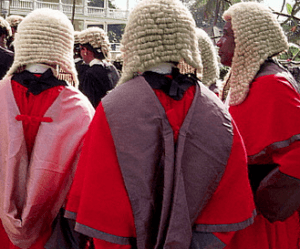Members of Judiciary trained on new criminal procedure
 Members of the judiciary have been trained on new practice direction and disclosures in criminal proceedings to ensure fair trial processes at the courts.
Members of the judiciary have been trained on new practice direction and disclosures in criminal proceedings to ensure fair trial processes at the courts.
Participants at the event included high, circuit and magistrate court judges, lawyers and members of the Bar from the Volta, Oti and Eastern regions.
The Supreme Court’s interpretation of paragraph (e) clause (2) of Article 19 of the 1992 constitution in the judgment of the Republic v Eugene Baffoe-Bonnie (Suit No.JI/06/2018), has shifted the criminal procedure process and made it clear that, as part of a fair trial process, an accused person is entitled to pre-trial disclosure of all relevant material in the possession of the prosecuting authority.
The clear intent of the practice is to ensure that criminal cases were resolved fairly, justly, efficiently and expeditiously” and that introduces a new way of working for the judiciary in respect of case management conference, hence the training to sensitize and equip members in the change of working by the practice direction.
It’s in view of the above that the Judicial Training Institute (JTI) of the judicial service of Ghana with counterpart funding from Accountability, Rule of Law and Anti-corruption Programme (ARAP), organized the training for the over 75 participants from the three regions in Koforidua.
Justice Dennis Adjei, Justice of the Court of Appeal and Director, JTI, who facilitated the training, said the objectives were to appreciate the overriding practice direction for the judges and magistrates to fully understand their role.
He said the training was to help the participants proactively manage their caseload through the use of the practice direction to ensure that cases were concluded as expeditiously as possible as well as understood the nature of the case management conference and how it fits into the whole trial process.
Taking the participants through Disclosure and Case Management in Criminal Proceedings under the new direction, Justice Adjei said all these were aimed at delivering justice to the people and urged them to do well to take human rights issues into serious consideration.
He said access is a key human right issue and so “case management processes must enquire about language of which the accuse or complainant have mastery over, hearing impairment or weather the person is physically challenged, because we don’t want people being carried to the law courts”.
These enquiries, Justice Adjei said, would help the courts to make adequate provisions to enable access and not wait until the case is called when these challenges then became hindrances at the trial”.
Lawyer Kwasi Amoako Adjei, Eastern Regional President of the Ghana Bar Association, (GBA) said, the new direction was a procedure that had been varied and the training has afforded them the opportunity to understand the new direction as to how to go about criminal trials.
He said but for the training, “you would find that many practitioners have problems with the bench which tends to delay proceedings but with this kind of training everyone seems to have a better understanding which will facilitate expeditious trial”.
Source: GNA
